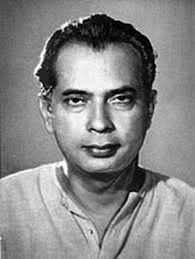
Bimal Roy was an influential and pioneering Indian film director, producer, and screenwriter, best known for his films in the Hindi film industry during the 1950s and 1960s. He is considered one of the founding fathers of the Indian New Wave movement in cinema, renowned for his distinct style of realistic and socially relevant filmmaking. His movies often focused on social issues, human emotions, and the struggles of the common man, making him one of the most respected filmmakers of his time.
Early Life and Education:
Bimal Roy was born on July 12, 1909, in Dhaka, which is now in Bangladesh but was part of British India at the time. His family was of Bengali origin, and he grew up in a culturally rich environment, which sparked his early interest in the arts.
Roy initially studied at Calcutta University, and while he was an engineering student, his passion for literature and cinema led him to pursue a career in the arts. He moved to Mumbai (then Bombay) in the 1930s, where he got involved in the film industry, starting his career in the technical side of filmmaking.
Early Career:
Bimal Roy began his career in the film industry by working with New Theatres, a prestigious film studio in Calcutta, where he worked as an assistant to renowned filmmaker Devki Kumar. He spent a significant amount of time learning the intricacies of filmmaking, especially in the areas of direction, writing, and editing.
Roy’s early career as a director was marked by his association with Bombay Talkies, where he worked as an assistant director. During this period, he gained experience working on several films, which helped shape his filmmaking style. His early exposure to both commercial and parallel cinema gave him a unique perspective on the medium.
Major Awards:
- National Film Awards:
- Best Feature Film (1954) for Do Bigha Zamin – This film won the National Film Award for Best Feature Film, marking a significant milestone in Bimal Roy’s career.
- Best Feature Film (1959) for Madhumati – Madhumati was awarded Best Feature Film at the National Film Awards, cementing Bimal Roy’s reputation as a filmmaker capable of creating enduring classics.
- Cannes Film Festival (1954):
- International Prize (1954) for Do Bigha Zamin – Do Bigha Zamin was recognized at the Cannes Film Festival with the International Prize, making Bimal Roy one of the first Indian filmmakers to gain international acclaim. The film was praised for its realistic portrayal of rural life and poverty.
- Filmfare Awards:
- Best Director (1955) for Devdas – Bimal Roy won the Filmfare Award for Best Director for his direction of the iconic film Devdas, which remains one of the most celebrated films in Indian cinema.
- Best Film Nomination (1959) for Madhumati – The film Madhumati received a nomination for Best Film at the Filmfare Awards and was widely appreciated for its evocative narrative and strong performances.
- BFJA (Bengal Film Journalists’ Association) Awards:
- Best Director (1954) for Do Bigha Zamin – Bimal Roy was awarded Best Director at the Bengal Film Journalists’ Association (BFJA) Awards for his direction of Do Bigha Zamin.
- Best Director (1959) for Madhumati – Roy received the Best Director award for Madhumati at the BFJA Awards, further solidifying his status as one of the leading filmmakers of his time.
Personal Life and Death:
Bimal Roy was married to Sushma Roy, and they had children. His son Joy Roy later became involved in the Indian film industry.
Bimal Roy passed away on January 8, 1966, at the age of 56, leaving behind a lasting legacy as one of the finest filmmakers in Indian cinema. His work continues to inspire filmmakers and audiences to this day, and his films are remembered as masterpieces of Indian cinema.
SOCIAL MEDIA LINKS :
YOUTUBE : https://www.youtube.com/watch?v=DGt0MTH2rDc&pp=ygUcQmltYWwgUm95IFBFUlNPTkFMIGludGVydmlldw%3D%3D



